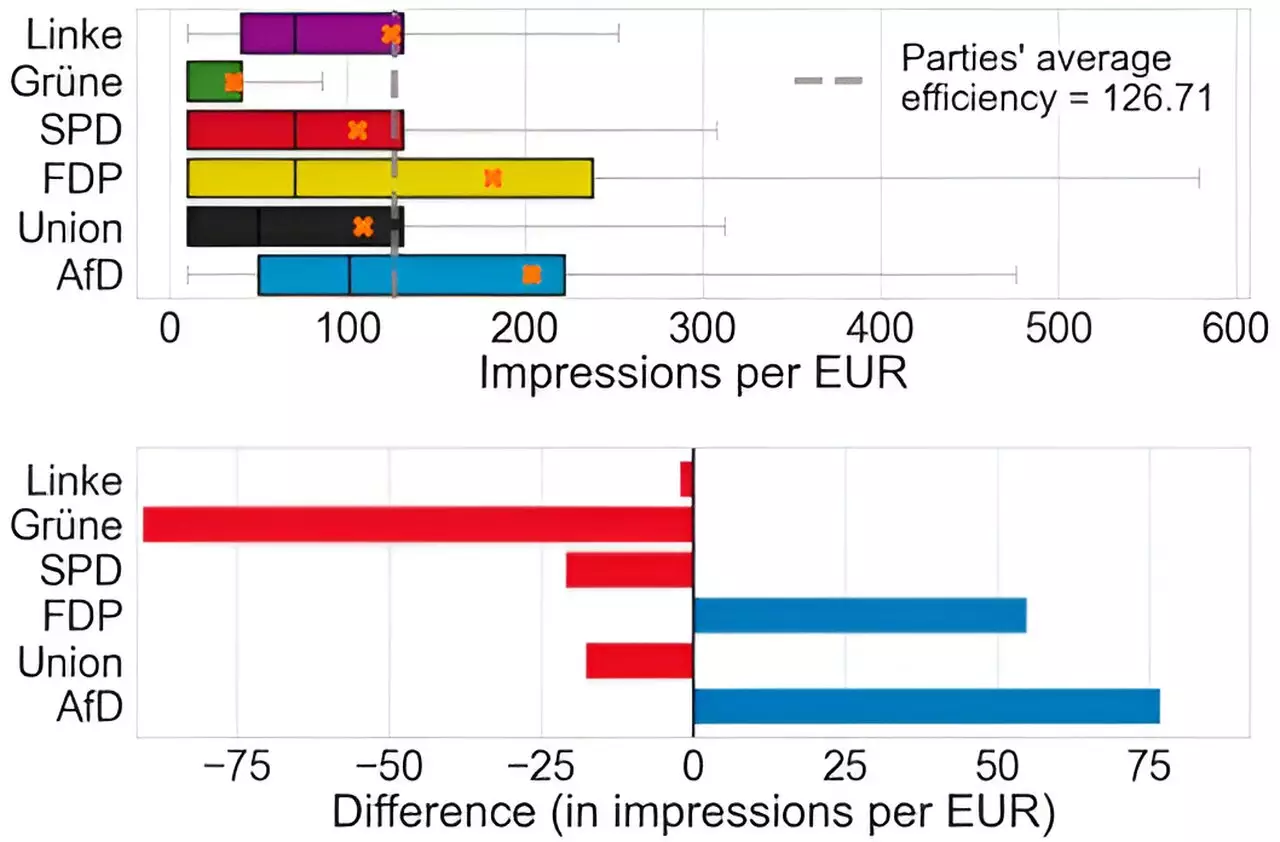In a recent study published in the journal PNAS Nexus, researchers from Politecnico di Milano, LMU—Ludwig Maximilians Universität of Munich, and the CENTAI institute of Turin shed light on the ways in which social media algorithms can influence political advertising during election campaigns. The study focused on analyzing over 80,000 political ads on Facebook and Instagram leading up to the 2021 German federal elections.
The research highlighted how social media algorithms tend to favor politically sponsored content from certain parties, even when they have the same investment budget. This bias in algorithmic distribution can have significant repercussions on the effectiveness of political advertising, often benefiting more extremist groups over mainstream parties. The study found that parties that pushed incendiary political issues tended to attract more attention on social media, leading to higher ad efficiency.
One of the key findings of the study was the significant variations in advertising effectiveness among political parties. While some parties saw their ads reaching a larger audience with the same budget, others struggled to achieve similar results. For instance, the far-right AfD proved to be the most effective, with ads being nearly six times more efficient than their competitors who had invested the same amount of money. On the other end of the spectrum, the Greens were the least cost-effective party.
The study also delved into the discrepancies between the targeted audience and the actual audience reached by political ads on social media. While most parties tended to reach a younger audience than anticipated, the far-right parties experienced the opposite trend. Researchers hypothesized that algorithmic bias in ad distribution could be attributed to known voter behavior patterns, which could potentially limit the political participation of certain disadvantaged groups.
Call for Transparency in Political Advertising
The researchers emphasized the importance of transparency in political advertising on social media platforms, calling for greater visibility and oversight to ensure fair and uncompromised elections. They argued that the lack of transparency in ad distribution algorithms could lead to unequal opportunities for political parties and hinder the democratic process. Public pressure and regulatory efforts, such as the Digital Services Act in the EU, aim to hold social media platforms accountable and provide researchers with access to political ad data for analysis.
The study’s findings shed light on the complex interplay between social media algorithms and political advertising effectiveness. As political campaigns increasingly rely on digital platforms to reach voters, understanding the impact of algorithmic biases is crucial for maintaining fair and transparent elections. By advocating for greater transparency and oversight in political advertising, researchers aim to safeguard democratic integrity and ensure equal opportunities for all political actors.


Leave a Reply